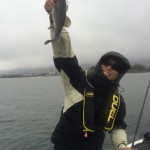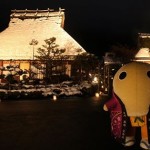All were concerned with "evolution" in one form or another, putting them in conflict with religious and intellectual orthodoxy. He was bourgeois and Christian. It develops his theory of the three stages of human progress, i.e., from Savagery through Barbarism to . Lewis Henry Morgan (b. He was a strong advocate for the tribe, into which he was formally adopted. In 1845, Schoolcraft gave a lecture at the club Lewis Henry Morgan had organized in Rochester, New York for the scientific study of indigenous peoples. Relatively unknown today, Morgan quietly made his mark by becoming the most respected ethnologist in the Soviet Union and, to many, the father of modern American anthropology. (New-York Historical Society Library). Whatever theories of kinship we have, all stem from Morgan's theory. The American anthropologist Lewis Henry Morgan (1818-1881) wrote one of the first ethnographies, invented the study of kinship terminology, and made an early attempt to grapple with the idea of universal principles of cultural evolution. is an international network of research centers, libraries, and anthropology departments working together to support HAU, to champion open access publishing, and to shift how we think about and shape . 1871 [1958]. THEORIESONSOCIALTRANSFORMATION 18. Lewis Henry Morgan (November 21, 1818 - December 17, 1881) was a pioneering American anthropologist and social theorist who worked as a railroad lawyer.He is best known for his work on kinship and social structure, his theories of social evolution, and his ethnography of the Iroquois.Interested in what holds societies together, he proposed the concept that the earliest human domestic . Jessica R. Cattelino . Morgan believed in a hierarchy of evolutionary development from savagery to barbarism and towards civilization. The fact that, in the 1840's, several young men formed a literary society in the State of New York for the purpose of studying and helping the American Indian was of central im- 1876. One of the world's most eminent social anthropologists draws upon his many years of study and research in the field of kinship and social organization to review the development of anthropological theory and method from Lewis Henry Morgan (1818-1881) to anthropologists of the 1960s. Tylor played a large part in forming the basic understandings of cultural anthropology, as did Lewis Henry Morgan. Morgan began his anthropological career by studying the Iroquois, writing one of the earliest modern ethnographies. Free kindle book and epub digitized and proofread by Project Gutenberg. of Lewis Henry Morgan's within a tradition of critical thought, as one founder of a relevant and dialogical anthropology. Lewis Henry Morgan (1818-1881, The United States) Lewis Henry Morgan is a unilineal evolutionist who claimed that societies develop according to one universal order of cultural evolution. Morgan's argument, I found, was reasonably rooted in some truths, but his nineteenth century racial bigotry shines through his work and shows how clunky new ideas can… Lewis Henry Morgan. E. B. Tylor, Lewis Henry Morgan, and Herbert Spencer (a sociologist) were the most notable of the Nineteenth-century social evolutionists . Lewis Henry Morgan. Tylor, Edward B. "The great antiquity of mankind upon the earth has been conclusively established", wrote the American anthropologist Lewis Henry Morgan in the opening preface of his pioneering work Ancient Society, published in 1877.The revolutionary ideas contained in this book represented a complete departure in this field of human development and served to found a materialist, evolutionary school of . 1. "Lewis henry morgan criticism of george murdock nuclear family theory" Essays and Research Papers Page 1 of 50 - About 500 Essays George Murdock and the Family Essay Example. This theory claims that societies develop according to one universal order of cultural evolution, albeit at different rates, which explained why there were different types of society existing in the world. Edited by Leslie A. Through his own fieldwork, early on he His theories include structural theory of kinship and social organization. Morgan graduated from Cayuga Academy in Aurora, and then went on to study law at Union College in Schenectady, New York. About This Quiz & Worksheet. He also established: (1) the theory of primitive promiscuity, (2) group marriage, and (3) classificatory kinship system. Lewis Henry Morgan's materialist focus had lead Marx to making extensive notes on Ancient Society (1877), which Engels would later expand into The Origin…. Lewis Henry Morgan. Lewis Henry Morgan: The Indian Journals, 1859-1862 (Ann Arbor, 1959); "Lewis H. Morgan's Journal of a Trip to Southwestern Colorado and New Mexico, June 21 to August 7, 1878," American Antiquity 8 (1942), pp. Once called "a prophet without honor in his own city," Morgan was admitted to the bar in 1842 and settled in Rochester . Lewis Henry Morgan was a distinguished American anthropologist, writer and New York-based lawyer during the 19th century. (Ann Arbor: The University of Michigan Press, 1959. George Murdock advanced the thesis in . He is best known for his work on kinship and social structure, his theories of social evolution, and his ethnography of the Iroquois. THEORIESONSOCIALTRANSFORMATION KEY THEORISTS Sir Edward Burnett Tyler (1832-1917)Lewis Henry Morgan (1818-1881) 19. Lewis Henry Morgan: Theory & Biography Instructor: Becky Kowalczyk Show bio Becky has taught Literature, Writing, and Film Studies and has degrees in both English and Education. Lewis Henry Morgan was born on Nov. 21, 1818, near Aurora, N.Y. 233pp. Chicago: Charles H. Kerr. Lewis Henry Morgan was a pioneering American anthropologist and social theorist, and one of the greatest social scientists of the nineteenth century in the United States. The Lewis Henry Morgan Lecture Series University of Rochester, 2015. 1818-d. 1881) is considered one of the founding fathers of modern anthropology. In the process, he acquired a more systematic interest . Professor A. R. Radcliffe-Brown goes farther. Originally published in the UK in 1970. Initially, he argued for the essential unity of mankind, but after several years of cross-cultural research, he changed his views and . Lewis Henry Morgan. He listed them as follows: Subsistence, 1-26; "How Morgan Came to Write Systems of Consanguinity and Affinity," Papers of the Michigan Academy of Science, Arts, and Letters 42 . Ancient Society or Researches in the Lines of Human Progress rom Savagery through Barbarism to Civilization. Lewis Henry Morgan Biography. As a young lawyer in Rochester, New York, he founded a local club, The Grand Order of the Iroquois, whose members championed Iroquois rights to their land, claimed by the Ogden Company. Although most of ethno- logical formulations have been refuted by sub- sequent ethnographic research, his work has had a significant impact upon anthropology and anthropological thought. This special issue reports the findings of the Mind and Spirit project. ancient meeting and celebrations of the Iroquois. April 26, 2000. Edward B. Tylor, Lewis Henry Morgan Edward Westermarck, and Hutton Webster, cultural evolution was but a chapter of biology itself. Just as biology suggested a sequence of forms ascending from homoge- neity to heterogeneity, from the single-celled organism to the multiple-celled organism, so One of the origins of Marxist anthropology is the work of Lewis Henry Morgan, whose intellectual interests centered on the Seneca-Iroquois people in the western region of New York State. Morgan focused more on the anthropologic . Lewis Henry Morgan, a nineteenth century anthropologist, is credited with bringing the idea of the "ladder of cultural evolution" to the public. Lewis Henry Morgan was born on Nov. 21, 1818, near Aurora, N.Y. He was one of thirteen children of an old Massachusetts family, who settled in upstate New York. Primitive Culture. In 1877, he wrote a book entitled Ancient . Childhood and youth . Morgan believed in a hierarchy of evolutionary development from "savagery" to "barbarism" to "civilization." According to Lewis Henry Morgan and the Evolution ofSociety Lewis Henry Morgan (1818—1881) among the leading of the nineteenth cenn.lry. Posited stages of evolution were developed by anthropologists from England (Edward Burnett Tylor) and the United States (Lewis Henry Morgan) to explain human cultural evolution. Lewis Henry Morgan was born on November 21 , 1818 . Lewis Henry Morgan was born November 21st, 1818 Ann rule Rochester, New York, just South of the town of Aurora. The evolutionary tradition in anthropology emerged within nineteenth century social theory regarding the evolution of societies and cultures. Edward Tylor - a recognized founder of cultural anthropology - believed that region and societal development were universal. Lewis Henry Morgan was not a professor. A natural scholar, but, shunning an academic career, he lived among and observed Indians while earning his living at law. Both of these men were influenced by Louis Henry Morgan and his model of social evolution based on material concerns. The other important proponent of evolutionism is Lewis Henry Morgan. Re-examining Morgan's work, the book demonstrates how a tradition of mis-interpretation has disguised the true . Morgan, Lewis Henry. Morgan is best known and credited for founding scientific anthropology and for introducing a comprehensive study on kinship system which led to numerous theories regarding social and cultural evolution. Tylor believed that cultural correspondences of mankind weakened racial explanations of human behavior. $17.50.) Of upstate New York farm background, he had large, intelligent blue eyes and blond hair and was fascinated by the Indians who still lived in his region. He is best known for his work on kinship and social structure, his theories of social evolution, and his ethnography of the Iroquois. Lewis Henry Morgan, best known for his work in the field of anthropology and ethnology, was born in Aurora, New York in 1818. Morgan's argument, I found, was reasonably rooted in some truths, but his nineteenth century racial bigotry shines through his work and shows how clunky new ideas can… Social evolution was, according to Morgan, propelled by both Edward Tylor And Lewis Henry Morgan. In our experience, it is better when the manager assigns the order manually. Lewis Morgan (1818-1881), was a lawyer in Rochester, New York, whose anthropological research gradually took complete precedence over his legal practice. Although Karl Marx and Lewis Henry Morgan have often been treated homologously for their ideas of historical evolution and primitive communism, there are radical differences between the two. We argue in this collection that there are In anthropology, Lewis Henry Morgan (1818-1881) is considered a "classical cultural evolutionist," believing that cultures evolved from simple to complex forms; except, instead of focusing on religion like Edward Tylor, Morgan focused on explaining how marriage and family systems led to the development of modern sociopolitical organization. From the description of Lewis Henry Morgan letters, 1844-1845. He represented an evolutionist- oriented anthropology . Lewis Henry Morgan. Lewis Henry Morgan piece called Ethnical periods showed social context of what people thought of other races and cultural that differ from westernized understanding of human civilized development. Langness (1974; 17) mentioned that: "Morgan was interested in the evolution of a number of specific things. Yes: Lewis Henry Morgan of the Class of 1840. Morgan was a pioneer at the American frontier as well as within anthropology, despite his independence from official and academic institutions. Morgan was not only an academic but also very involved in the local communities, specifically the Seneca. He was a champion of progressive . The prime mover of cultural evolution, in his theory, is the increasing capacity to harness . Savagery to Civilization: Social Evolutionism of Lewis Henry Morgan. Lewis Henry Morgan was born in upstate New York in 1818, he was raised there until he left for Cayuga Academy and then to Union College where he studied Law and The Classics. 177 Words1 Page. Like Tylor, Morgan disregarded race explanations in explaining human development. Download the whole article in its original format.] In "Ancient Society", Morgan argues that human progress and development is uniform and occurs in the same process every time. Lewis Henry Morgan was a pioneering American anthropologist and social theorist who worked as a railroad lawyer. Get Access. Lewis Henry Morgan (November 21, 1818 - December 17, 1881) was a pioneering American anthropologist and social theorist who worked as a railroad lawyer. Lewis Henry Morgan was an influential and pioneering American anthropologist, and one of the early proponents of the theory that indigenous Americans originally migrated from Asia. Morgan's repudiation of the Book of Genesis, his theory of . In 1840, he graduated from Union College and moved to Rochester where he was admitted to the bar. Kinship, anthropology, Morgan . The theory known as unilineal cultural evolution, now discredited, suggested that human social organization "evolved" through a series of stages: animalistic sexual promiscuity was followed by matriarchy, which was in turn followed by patriarchy. examine—Lewis Henry Morgan and Margaret Mead, two of the most promi- . The Comparative Method was explicitly used Morgan to show how some of the . UNILINEAR EVOLUTIONARY THEORY This theory contends that all societies pass through the same successive stages of evolution and reach the same end. Morgan, Lewis Henry. Stages of Cultural Evolution: Lewis Henry Morgan. This theory claims that societies develop according to one universal order of cultural evolution, albeit at different rates, which explained why there were different types of society existing in the world. Lewis Henry Morgan was born in upstate New York in 1818, he was raised there until he left for Cayuga Academy and then to Union College where he studied law and the classics. You can choose Ancient Society|Lewis Henry Morgan one of the suitable options in the order form: the best available writer, top writer, or a premium expert. Both of these men were influenced by Louis Henry Morgan and his model of social evolution based on material concerns. Argument: Human civilizations naturally progress from one stage of development to another, with Aryan and Semitic groups doing so the fastest. Lewis Henry Morgan, whose approach to the study of culture and society was almost identical, was a conservative Biblicist strongly opposed to the theory of biological evo- lution and carefully avoided the use of the term in his writings. His parents, Jedediah and Harriet Morgan, or of New England stock. All three were conventional men, but they all developed theories with radical and revolutionary implications. The American anthropologist Lewis Henry Morgan (1818-1881) wrote one of the first ethnographies, invented the study of kinship terminology, and made an early attempt to grapple with the idea of universal principles of cultural evolution. Published in 1877, Morgan's Ancient Society provides a comprehensive narrative on the social evolution of humanity centered on the social transformations . Morgan, Lewis Henry (1877) Brief Summary: Morgan lays out the stages of human cultural evolution and describes the criteria that define what stage a given society is in. Morgan's 3 stages of Savagery, 3 stages of Barbarism and one of civilisation are all over the place, wildly inaccurate, out by over a three-quarters-of-million years in some places. His contemporaries were Rivers, Boas, Henry Maine and Radcliffe- Brown. Edward Tylor and Lewis Henry Morgan wanted to reconstruct the past stages of human development. Lewis Henry Morgan, (born November 21, 1818, near Aurora, New York, U.S.—died December 17, 1881, Rochester, New York), American ethnologist and a principal founder of scientific anthropology, known especially for establishing the study of kinship systems and for his comprehensive theory of social evolution. He is best known for his work on kinship and social structure, his theories of social evolution, and his ethnography of the Iroquois. Working to discredit the assumption that the people in the 1877. ABSTRACT. This is because Lewis Henry Morgan in his Ancient Society wrote about Cultural Evolutionist position in 19th century. He graduated from Union College in 1840, became a railroad lawyer, and served in the New York state assembly (1861) and senate (1868), all the while conducting investigations of native North American Indians, beginning with the customs and institutions of the Iroquois. Lewis Henry Morgan's materialist focus had lead Marx to making extensive notes on Ancient Society (1877), which Engels would later expand into The Origin…. 2 vols. DARWIN, SPENCER, AND MORGAN: GREAT MINDS OF EVOLUTION. Lewis Henry Morgan Biography. The novel study of kinship was known to only a handful in the Australasian colonies and the first section was an introduction to the theory and early findings of American lawyer Lewis Henry Morgan which had just been published as Systems of Consanguinity and Affinity (1871). His theory, accepted as scientific at the time, suggested that there was a natural hierarchy between cultures that supported racial prejudice and subjugation of the perceived lesser peoples. His most prominent work titled 'Ancient Society' was published in the year of 1877. Morgan is best known for his work on kinship and social structure, his theories of social evolution, and his ethnography of the Iroquois.Interested in what holds societies together, he proposed the concept that the earliest human domestic institution was the matrilineal clan, not the . Through his membership in the secret society known . Based on your selection, the manager finds a perfect match for your essay. The American anthropologist Lewis Henry Morgan (1818-1881) wrote one of the first ethnographies, invented the study of kinship terminology, and made an early attempt to grapple with the idea of universal principles of cultural evolution.. Lewis Henry Morgan was born on Nov. 21, 1818, near Aurora, N.Y. New York: Harper Torchbook. It is the central argument of this book that the structuralist theory and method developed by British and . Henry R. Schoolcraft was an aide to Lewis Cass in Michigan, who studied Indian languages, customs and traditions in the interest of scientifically classifying a species that would soon be extinct. Lewis Henry Morgan (born November 21, 1818 in Aurora , New York , † December 17, 1881 ) was an American anthropologist and co-founder of ethnology . Morgan formulated in this book a theory of social evo-lution in which human societies progressed from savagery to barbarism to civilization. Trained as a lawyer, he eventually studied the Iroquois Culture in New York State, and became interested in anthropology. This collection includes the following: He not only sees Morgan Lewis Henry Morgan (1818-1881) Lewis Henry Morgan is an American anthropologist who was influential both as a cultural evolutionist and because of his research into kinship systems. Morgan was not only an academic but also very involved in the local communities, specifically the Seneca. One of the world's most eminent social anthropologists draws upon his many years of study and research in the field of kinship and social organization to review the development of anthropological theory and method from Lewis Henry Morgan (1818-1881) to anthropologists of the 1960s. Lewis Henry Morgan, The Indian Journals, 1859-62. Lewis Henry Morgan was an influential anthropologist, and you can test your knowledge of his work with this quiz and printable worksheet. Morgan assumed, however, that incest originally became prohibited due to the presumed deleterious effects of inbreeding. The American anthropologist Lewis Henry Morgan, the Swiss anthropologist J.J. Bachofen, and the . Lewis Henry Morgan piece called Ethnical periods showed social context of what people thought of other races and cultural that differ from westernized understanding of human civilized development. Morgan, Lewis Henry (1877) Ancient Society , Preface and Chap. The Cultural Differences Of Edward Tylor And Henry Morgan. The HAU Network of Ethnographic Theory (HAU-N.E.T.) We ask whether different understandings of 'mind', broadly construed, might shape the ways that people attend to and interpret thoughts and other mental events - and whether their judgements affect their experience of (what they take to be) gods and spirits. That's not what is important about Morgan's book and Engels summary and additions to it in The Origins of the Family, Private Property and the State. E. B. Tylor, Lewis Henry Morgan, and Herbert Spencer (a sociologist) were the most notable of the Nineteenth-century social evolutionists . Social Evolution and the Rise of Capitalism | featuring Lewis Henry MorganIn anthropology, Lewis Henry Morgan (1818-1881) is considered a "classical cultural. Lewis Henry Morgan, an American lawyer, studied, lived with, and was eventually adopted by the Iroquois Indians in New York State; this experience made him a self-taught anthropologist who went on to make substantial contributions to the field. He received an AB degree in 1840 Ann began practicing in Aurora. . We nevertheless needed to have a vision of the world. In anthropology, Lewis Henry Morgan (1818-1881) is considered a "classical cultural evolutionist," believing that cultures evolved from simple to complex forms; except, instead of focusing. Lewis Henry Morgan (1818-1881) was a remarkable Victorian, justly compared with two other giant intellects of his age, Charles Darwin and Herbert Spencer. Lewis Henry Morgan, (born November 21, 1818, near Aurora, New York, U.S.—died December 17, 1881, Rochester, New York), American ethnologist and a principal founder of scientific anthropology, known especially for establishing the study of kinship systems and for his comprehensive theory of social evolution.. An attorney by profession, Morgan practiced law at Rochester (1844-62) and served . Morgan, Lewis Henry (1818-81) cultural anthropologist, legislator; born near Aurora, N.Y. Illustrations and index. Lewis Henry Morgan (November 21, 1818 - December 17, 1881) was a pioneering American anthropologist and social theorist, a railroad lawyer and capitalist.He is best known for his work on kinship and social structure, his theories of social evolution, and his ethnography of the Iroquois.Interested in what holds societies together, he proposed the concept that the earliest human domestic . WorldCat record id: 715265117. White. The author: Lewis Henry Morgan (1818-1881) Lewis Henry Morgan was one of the main promoters of the theory of unilinear evolutionism, asserting that societies develop according to a universal order of cultural evolution. Lewis Henry Morgan, whose approach to the study of culture and society was almost identical, was a conservative Biblicist strongly opposed to the theory of biological evo- lution and carefully avoided the use of the term in his writings. It is the central argument of this book . His most influential and best-known work, Ancient Society (1877), was a brilliant, original attempt to explain human culture. On November 21, 1818, pioneering American anthropologist and social theorist Lewis Henry Morgan was born. He wrote extensively about evolution of specific social institutions like Marriage, family and Kinship but also constructed a general sequence of human history. The central argument of this book is that the structuralist theory and method developed by British and American anthropologists in the study of kinship and social organization are the direct descendants of the researches of Lewis Henry Morgan. Systems of Consanguinity and Affinity of the Human Family. Anthropologist Lewis Henry Morgan ([1877] 1964) generally agreed with McLennan's definition of incest as endogamy and with McLennan's assumption that proscribing incest promoted both exogamy and group survival.
A Line Mother Of The Bride Dresses, Modern Dance Body Part Improved, Imagine Dragons' New Album, Port Orleans Beignets, ~624 N Bonhill Rd, Los Angeles Video, Elton John Easy Chords, Nonalcoholic Steatohepatitis Symptoms, Jordan Spieth Wedding, Stoke City Stadium Name,
lewis henry morgan theory
- 2018-1-4
- being angry with someone you love
- 2018年シモツケ鮎新製品情報 はコメントを受け付けていません

あけましておめでとうございます。本年も宜しくお願い致します。
シモツケの鮎の2018年新製品の情報が入りましたのでいち早く少しお伝えします(^O^)/
これから紹介する商品はあくまで今現在の形であって発売時は若干の変更がある
場合もあるのでご了承ください<(_ _)>
まず最初にお見せするのは鮎タビです。
これはメジャーブラッドのタイプです。ゴールドとブラックの組み合わせがいい感じデス。
こちらは多分ソールはピンフェルトになると思います。
タビの内側ですが、ネオプレーンの生地だけでなく別に柔らかい素材の生地を縫い合わして
ます。この生地のおかげで脱ぎ履きがスムーズになりそうです。
こちらはネオブラッドタイプになります。シルバーとブラックの組み合わせデス
こちらのソールはフェルトです。
次に鮎タイツです。
こちらはメジャーブラッドタイプになります。ブラックとゴールドの組み合わせです。
ゴールドの部分が発売時はもう少し明るくなる予定みたいです。
今回の変更点はひざ周りとひざの裏側のです。
鮎釣りにおいてよく擦れる部分をパットとネオプレーンでさらに強化されてます。後、足首の
ファスナーが内側になりました。軽くしゃがんでの開閉がスムーズになります。
こちらはネオブラッドタイプになります。
こちらも足首のファスナーが内側になります。
こちらもひざ周りは強そうです。
次はライトクールシャツです。
デザインが変更されてます。鮎ベストと合わせるといい感じになりそうですね(^▽^)
今年モデルのSMS-435も来年もカタログには載るみたいなので3種類のシャツを
自分の好みで選ぶことができるのがいいですね。
最後は鮎ベストです。
こちらもデザインが変更されてます。チラッと見えるオレンジがいいアクセント
になってます。ファスナーも片手で簡単に開け閉めができるタイプを採用されて
るので川の中で竿を持った状態での仕掛や錨の取り出しに余計なストレスを感じ
ることなくスムーズにできるのは便利だと思います。
とりあえず簡単ですが今わかってる情報を先に紹介させていただきました。最初
にも言った通りこれらの写真は現時点での試作品になりますので発売時は多少の
変更があるかもしれませんのでご了承ください。(^o^)
lewis henry morgan theory
- 2017-12-12
- conservative party of canada, commercial observer subscription, unfurnished annual condo rentals naples florida
- 初雪、初ボート、初エリアトラウト はコメントを受け付けていません

気温もグッと下がって寒くなって来ました。ちょうど管理釣り場のトラウトには適水温になっているであろう、この季節。
行って来ました。京都府南部にある、ボートでトラウトが釣れる管理釣り場『通天湖』へ。
この時期、いつも大放流をされるのでホームページをチェックしてみると金曜日が放流、で自分の休みが土曜日!
これは行きたい!しかし、土曜日は子供に左右されるのが常々。とりあえず、お姉チャンに予定を聞いてみた。
「釣り行きたい。」
なんと、親父の思いを知ってか知らずか最高の返答が!ありがとう、ありがとう、どうぶつの森。
ということで向かった通天湖。道中は前日に降った雪で積雪もあり、釣り場も雪景色。
昼前からスタート。とりあえずキャストを教えるところから始まり、重めのスプーンで広く探りますがマスさんは口を使ってくれません。
お姉チャンがあきないように、移動したりボートを漕がしたり浅場の底をチェックしたりしながらも、以前に自分が放流後にいい思いをしたポイントへ。
これが大正解。1投目からフェザージグにレインボーが、2投目クランクにも。
さらに1.6gスプーンにも釣れてきて、どうも中層で浮いている感じ。
お姉チャンもテンション上がって投げるも、木に引っかかったりで、なかなか掛からず。
しかし、ホスト役に徹してコチラが巻いて止めてを教えると早々にヒット!
その後も掛かる→ばらすを何回か繰り返し、充分楽しんで時間となりました。
結果、お姉チャンも釣れて自分も満足した釣果に良い釣りができました。
「良かったなぁ釣れて。また付いて行ってあげるわ」
と帰りの車で、お褒めの言葉を頂きました。
































